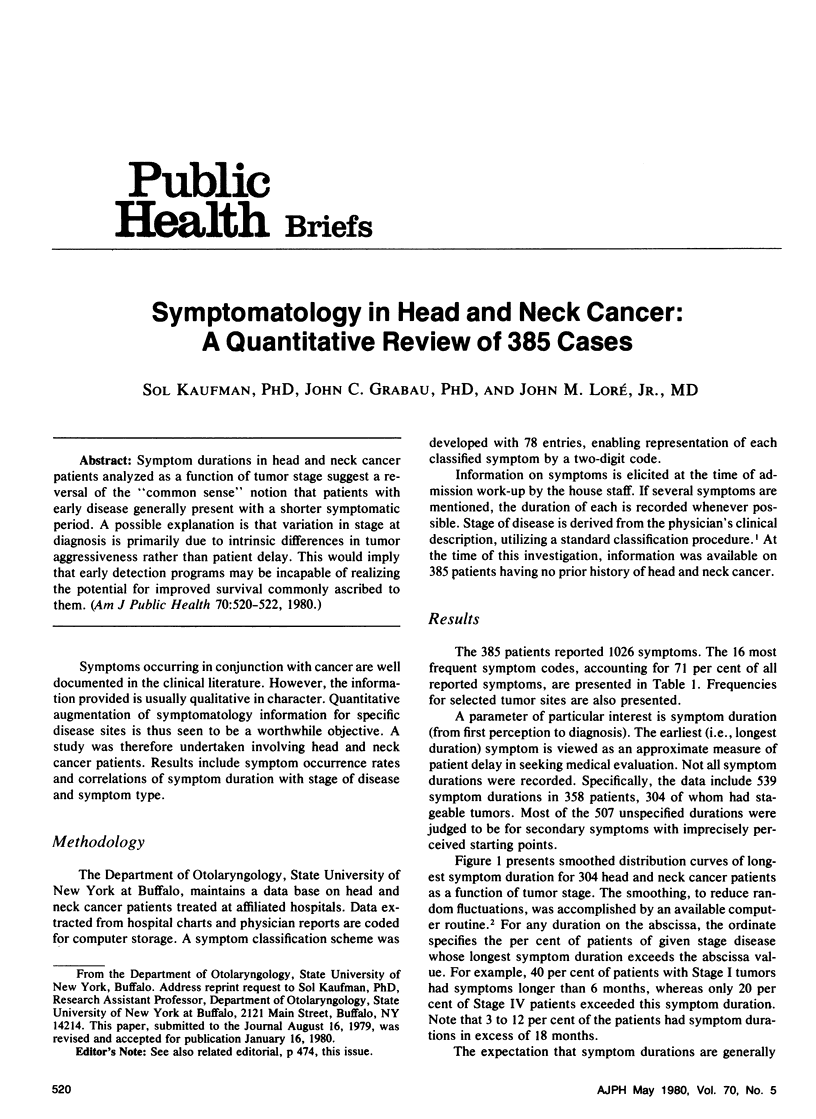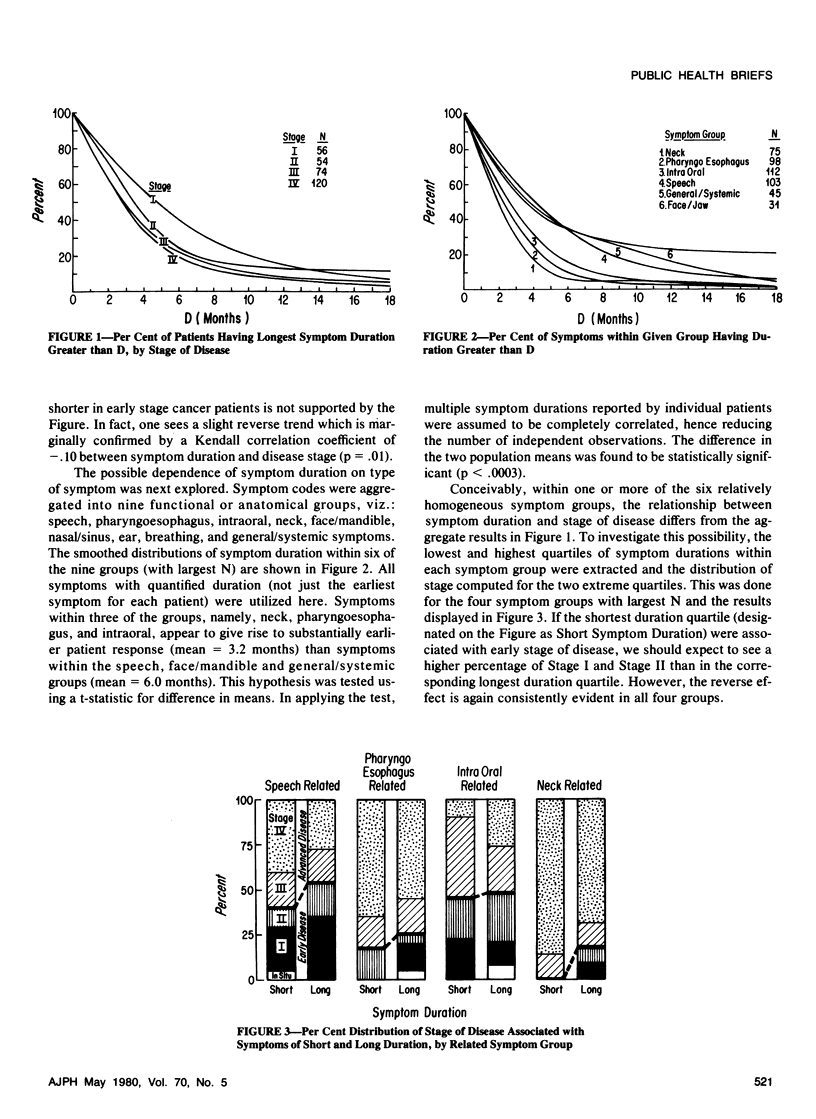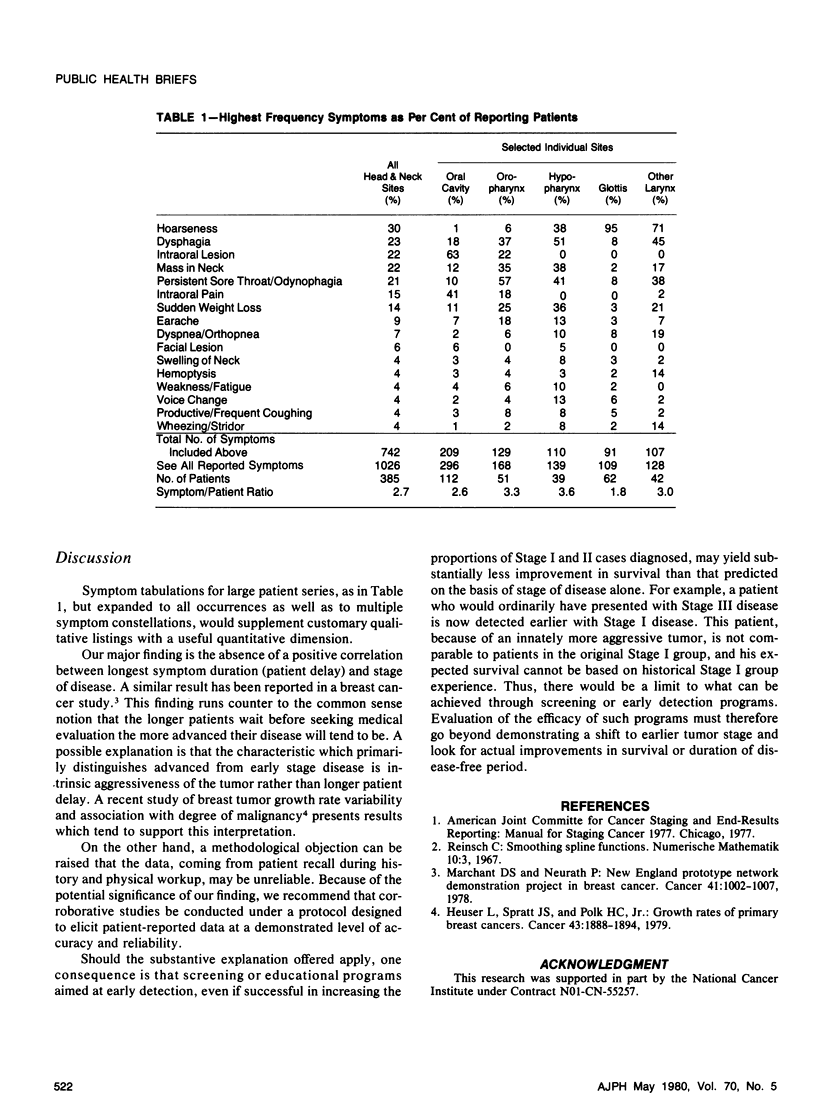Abstract
Symptom durations in head and neck cancer patients analyzed as a function of tumor stage suggest a reversal of the "common sense" notion that patients with early disease generally present with a shorter symptomatic period. A possible explanation is that variation in stage at diagnosis is primarily due to intrinsic differences in tumor aggressiveness rather than patient delay. This would imply that early detection programs may be incapable of realizing the potential for improved survival commonly ascribed to them.
Full text
PDF


Selected References
These references are in PubMed. This may not be the complete list of references from this article.
- Heuser L., Spratt J. S., Polk H. C., Jr Growth rates of primary breast cancers. Cancer. 1979 May;43(5):1888–1894. doi: 10.1002/1097-0142(197905)43:5<1888::aid-cncr2820430545>3.0.co;2-m. [DOI] [PubMed] [Google Scholar]
- Marchant D. J., Neurath P. New England prototype network demonstration project in breast cancer. Cancer. 1978 Mar;41(3):1002–1007. doi: 10.1002/1097-0142(197803)41:3<1002::aid-cncr2820410331>3.0.co;2-#. [DOI] [PubMed] [Google Scholar]


